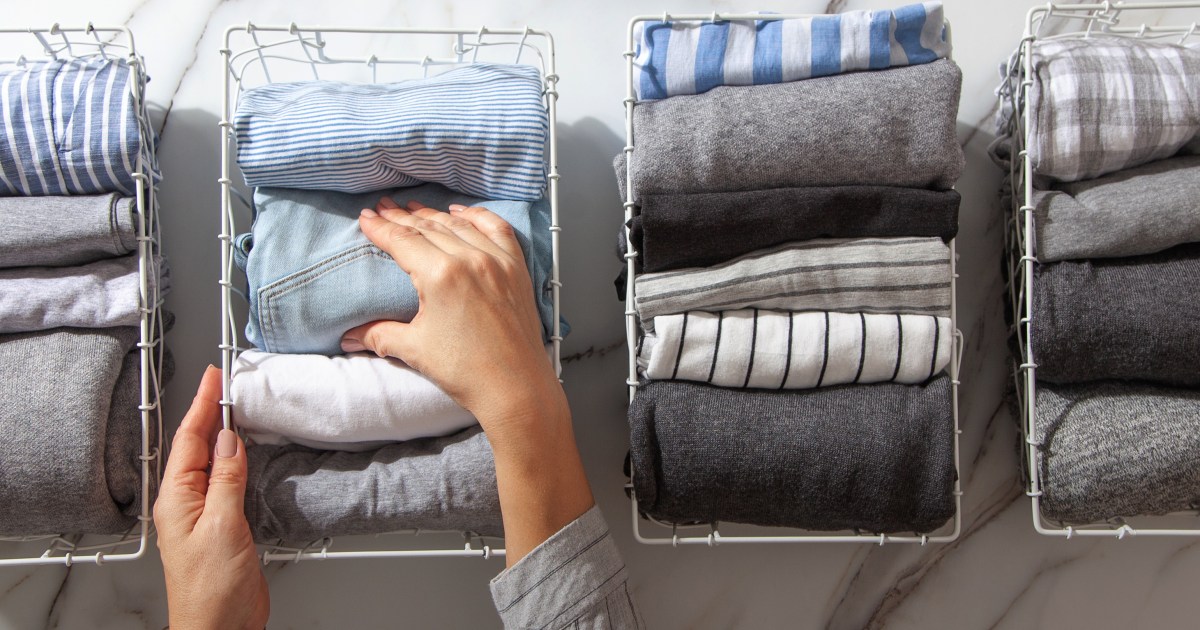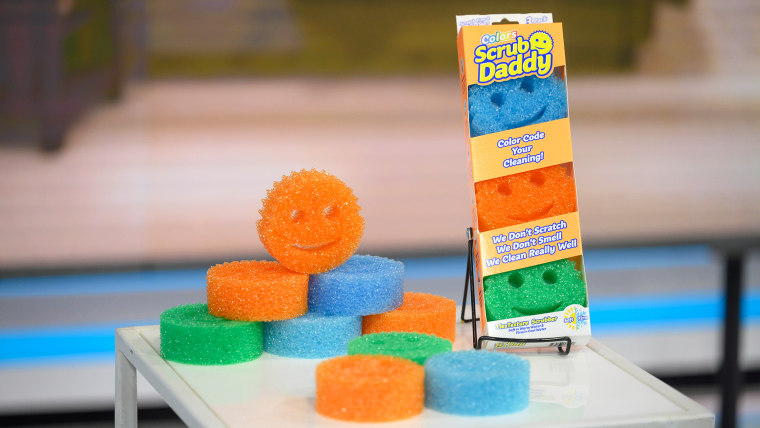Why decluttering is good for you
Last Sunday marking the first day of a new season, spring cleaning officially arrived. And while most of us are taking advantage of the longer days and warmer weather to dig in with new cleaning and organizing projects, 2022 will likely mean a deeper dive than we did last year. .
Matt Paxton, downsizing and decluttering expert and author of “Keep The Memories, Lose the Stuff,” explained that because most of us have spent the past two years cooped up indoors, our messes are probably bigger than usual, our need to declutter and get organized increased. “A lot of people are overwhelmed with the things coming out of the pandemic,” he said. Burke Bradshaw, chief operating officer of storage company Towne Storage, pointed out that the recent increase in self-storage units correlates with people making room for a home office during closures and to offload pandemic-related purchases. “We are currently experiencing the highest occupancy rates we have seen at many of our sites,” he said.
Experts said the rise in cleaning and organizing is likely to have benefits beyond cleaner homes, however, with improved mental health topping the list. “Disorder can make us feel stressed, anxious and depressed,” said Dr. Libby Sander, assistant professor of organizational behavior at Bond University in Australia and author of several studies on the harmful effects of disorder. Sander conducted one such study that shows how messes negatively impact relationships, but said there are many additional downsides to being surrounded by clutter too often. Research has shown a link between disorganization and depression, a link between messy environments and poor eating habits, and findings that clutter reduces the ability to concentrate and retain information. “Our brain loves order, and the constant visual reminders of disorganization drain our cognitive resources,” Sander said.
Recognizing the cumulative negative impact of clutter and disorganization is one thing, knowing how to shed the burden is another. To that end, experts offer helpful tips for getting organized and stay like that.
Define your goals
Before you begin, it helps to define your goals. “Know your finish line,” Paxton said. “Having a clear goal of what you want to accomplish before you start and tracking your progress along the way will help you stay positive and finish.”
start small
After defining your goal, you are ready to begin; do not bite more than you can chew. “I encourage people to pick a small area like a junk drawer or a car trunk and try to clean and organize that thing in one sitting,” Paxton said. He explained that “a ten-minute sweep a day” is a technique he has practiced and taught others for twenty years. “The goal is to finish something and appreciate the work you’ve done, not burn out on day one,” he said.
Plan ahead
Planning ahead can be helpful once you’re ready to tackle bigger projects, like a closet or a full room. Tracy Bowers, a professional home organizer with 184,000 Instagram followers and owner of Organize Simply, says home organizing needs to become a priority that you set aside time for and otherwise won’t happen. “Having a date scheduled on your calendar will motivate you and help you mentally prepare,” she said. Planning ahead also means freeing up space in your car to unload items, buying storage containers ahead of time, and having plenty of garbage bags on hand so you have no excuses to procrastinate. along the way.
Say goodbye to things you don’t need
The most important step in decluttering is actually getting rid of the excess. It’s about defining what you use often, what you don’t need as often, and what you can do without.
When it comes to parting with items that have sentimental value, Bowers suggested taking photos of those items and saving the photos in an album to remember later. Paxton said it can also be cathartic to tell loved ones stories about important possessions when saying goodbye. “You’ll also find it easier to get rid of certain items by sharing the amazing family stories that go with them,” he said. “Memories are forever, but your mother’s old collection of encyclopedias may fade.”
And while it can be hard to part with some assets, Paxton said he’s helped countless people downsize, “and I can tell you, I’ve never had a client who wanted get all his stuff back. Most people find happiness with less because it turned their lives upside down,” he said.
Store seasonal items
After you’ve done the hard part of getting rid of the items you don’t need, you’re left with the ones you have, although many belongings aren’t needed as often as others. Although Paxton warned against storing items you’ll never use (“self-storage is for something you need, not something you just don’t want to take decision”), he explained that storing seasonal recreational equipment such as mountain bikes, fishing, hiking or skiing equipment, as well as Christmas decorations and other seasonal decorations can be useful to create more space in his garage or basement.
When considering using a storage unit, Bradshaw said it’s important to plan ahead because many storage companies have long waiting lists and he explained the importance of knowing how much storage space you’ll actually need before committing. “We have people who show up with a big truck thinking its contents will fit in a small unit,” he said, adding that paying for more storage than necessary should also be avoided. Bradshaw also stressed the importance of requesting a temperature-controlled unit when storing fragile items that could be damaged by temperature extremes.
Skip the yard sale and donate instead
In addition to throwing things away and storing seasonal items, donating personal belongings can make organizing more meaningful and fun. Think about family members who might appreciate the items you’re considering parting with; also consider the needs of churches and non-profit organizations. Donation centers like Goodwill, The Salvation Army, or Deseret Industries have locations scattered across many states. “Giving items to people in need is much more rewarding than selling them,” Paxton said.
He also noted that selling larger items such as bikes, furniture and workout equipment can be worth it when selling through online classifieds, but the time some invest when garage sales are often not worth it. “Remember that your time also has financial value, so don’t spend six hours trying to squeeze an extra $5 out of a used grill,” he advised.
Label containers for to stay organized
Although many people manage to organize themselves, to stay organization is often more difficult because objects usually end up where they were if their location is not clearly defined. “The key to successfully staying organized is creating a specific ‘home’ for everything we own,” Bowers said. She advised identifying specific places to store larger items and using storage containers for everything else. “Be consistent with the style of containers you use in each space – it’s more aesthetic to look at,” she added. “And be sure to measure the size of your area before you start shopping.
First and foremost, Bowers said each container must be properly labelled. “I hear people say they don’t need labels because they know what things belong to; but when you’re in a hurry, it’s natural to put something on everywhere.” Besides being a reminder of where everything should be, she explained that the tags are also useful for involving the rest of the family. “We want to make sure the whole family is on board and aware of the place of things,” she said.
The time and effort required to clean and organize can be difficult at first, but the effort will be worth it in the end. “A chronically cluttered home environment can be emotionally draining,” Sander said; adding that tidy and organized homes, on the other hand, are “emotionally liberating, more pleasant to live in and better for your physical health”.
Related:



Comments are closed.